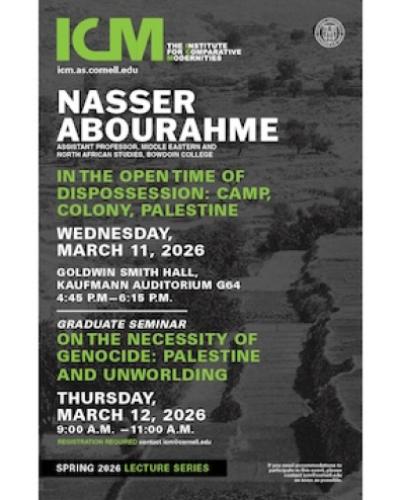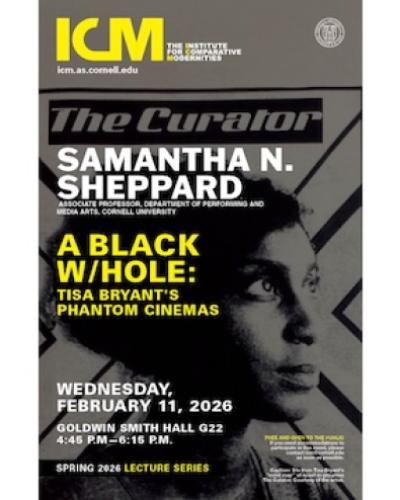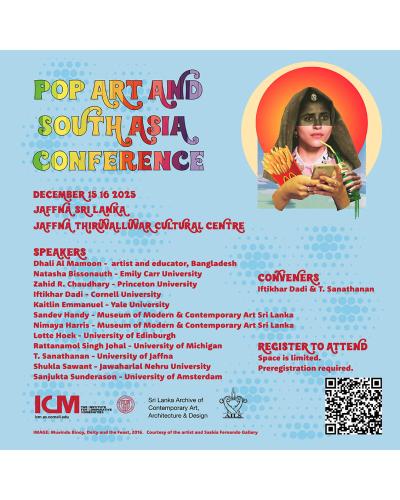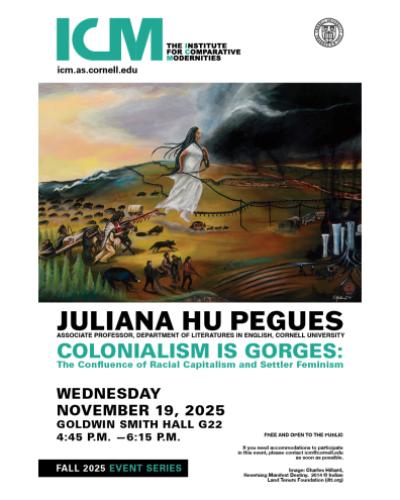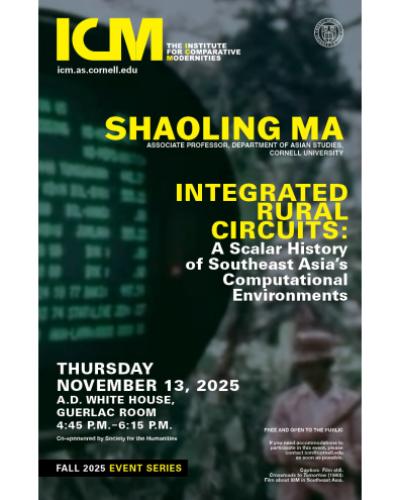ICM NEW CONVERSATIONS SERIES
Fall 2025
SHAOLING MA (Cornell University)
Integrated Rural Circuits: A Scalar History of Southeast Asia's Computational Environments
Thursday, November 13, 2025
Guerlac Room, A.D. White House
4:45 p.m. –6:15 p.m.
Co-sponsored by Society for the Humanities
ABSTRACT
Postwar advances in information processing and communication networks increasingly automated calculable relations between natures, peoples, and things to the point of appearing to be the cause of their interconnections. My talk chips away at the veneers of such computational environments by expansively recentering rurality as the ground and figure, the object and agentive subject of Southeast Asia’s computing history. Far from attempting a systematic overview, I share several intertwined case studies of computer-aided rural-focused applications from the Philippines, Vietnam, and Malaysia between the late 1950s and 1980s that expose computerization’s less publicized roots in postcolonial elite land ownership, bureaucratic modernization, and race politics; the Cold War circuit of securitization and activism; pre-digital histories of self-contained interchangeability in agricultural production; and agrarian-rural labor restructuring. It is thus the concrete social relations of rural (dis)integration and circuitry that helped to scale Southeast Asia’s computational environments—and their attendant epistemologies—across local, national, regional, and transnational levels. Computational scalar techniques on the other hand often downplayed rurality’s network effect, but in doing so inadvertently ripen it for analysis.
BIO
Shaoling Ma is an interdisciplinary scholar and critical theorist of global Chinese literature, cultural history, and media. Her teaching and research interests include critical theory and late nineteenth-century to contemporary Chinese and Southeast Asian studies.
Prof. Ma's first book, The Stone and the Wireless: Mediating China, 1861-1906 (Duke UP, 2021) asks what media studies can gain conceptually from the last few decades of the Manchu Qing dynasty (1644-1912), and what this politicized and semicolonial phase of Chinese history looks like when reviewed from the new and mostly foreign communicative technologies of its time such as telegraphy, telephony, phonography, and photography. The Stone and the Wireless argues that when Chinese intellectuals, writers, and revolutionaries wrote and illustrated their encounters with these devices, they inadvertently challenged existing notions of politics, tradition, and science, and thus reconfigured new sites of ideological struggle.
Prof. Ma is currently working on a second book, tentatively titled Asia in Loops, a cultural history and critical theorization of how computational techniques aiding East and Southeast Asian capitalist accumulation feed on the region's larger geopolitical tensions to produce seemingly self-referential and self-regenerating loops to which culture and criticism risk capitulating.

